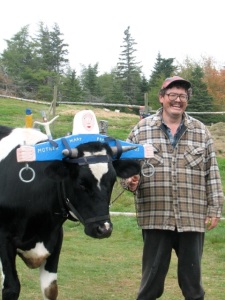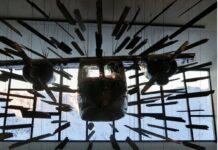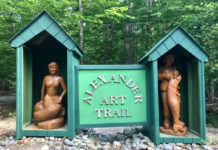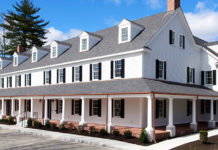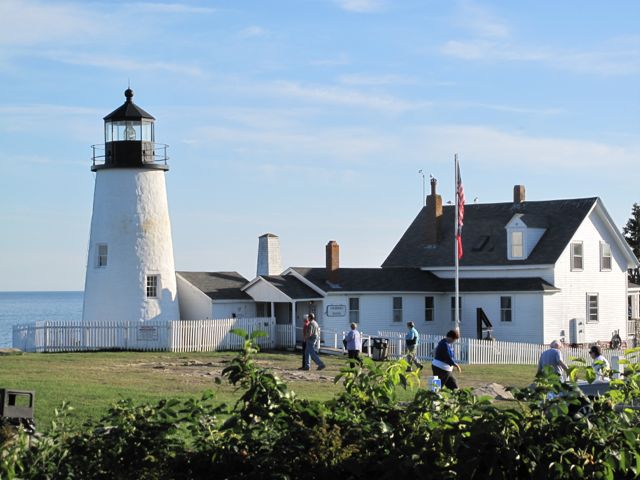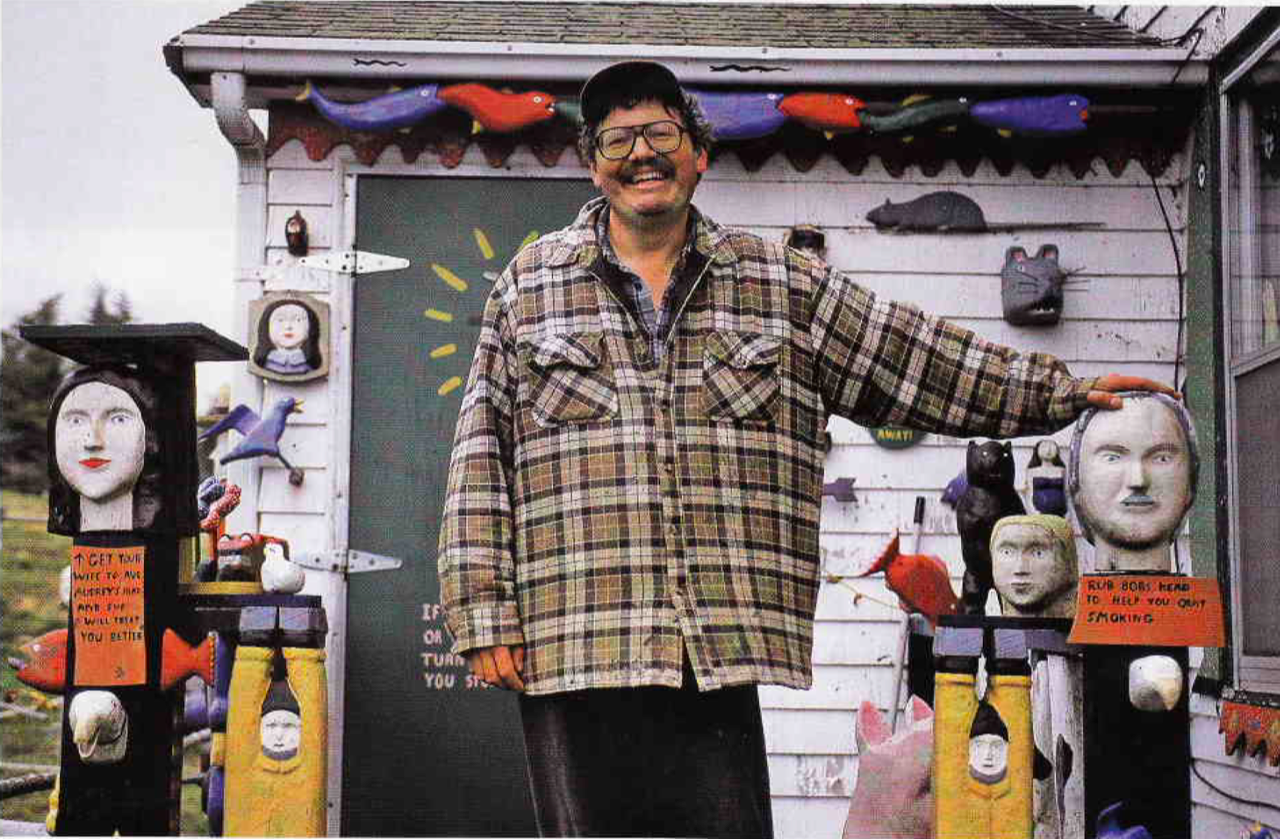
It’s easy to find Barry Colpitts’s home gallery in East Ship Harbor, Nova Scotia. Folk art adorns the house, lawn, barn, shed, fence, car, and even the mailbox and truck. Hand-carved, two- and three-dimensional birds and fish, saints and sinners, mermaids and fishermen, augment every available surface. Works of art, all painted in bold colors using shiny boat paint, adorn shutters, trim, railings, and newel posts.
“Bright colors make me feel good. Nothing else looks right,” Colpitts says. Even on a dreary day, it’s a smile-producing sight.
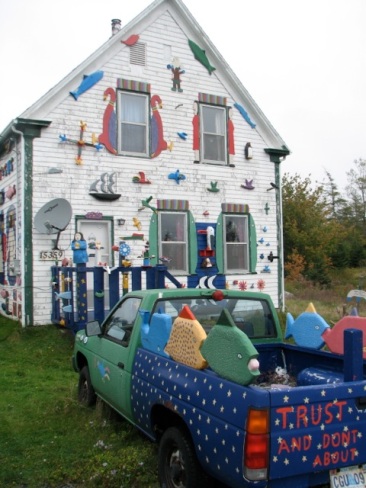
Colpitts’ religious convictions are evident in his use of angels and crosses and his whimsical interpretation of the seven deadly sins: yelling all the time, wanting other people’s stuff, eating too frigging much, looking too hard at someone else’s wife.
Even the oxen on his small farm are blessed with yokes accented with religious icons. “They need all the help they can get,” he quips.
“Most of the stuff on the house is people I know,” Colpitts says, pointing out a neighbor girl, various relatives, and Uncle Bob. “Rub his head to help quit smoking,” Colpitts advises. And then he explains: “Uncle Bob was a heavy smoker, and his likeness had a cigarette dangling from his mouth. It broke off with an icicle—and Uncle Bob quit smoking at the same time.”
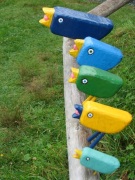
Colpitts is never short on ideas for creating new pieces for the house or to sell in his shop. “The longer I do it, the quicker they come, and the less good I am for anything else,” he says. “Folk art is like the loaves and fishes, it keeps coming and coming.”
